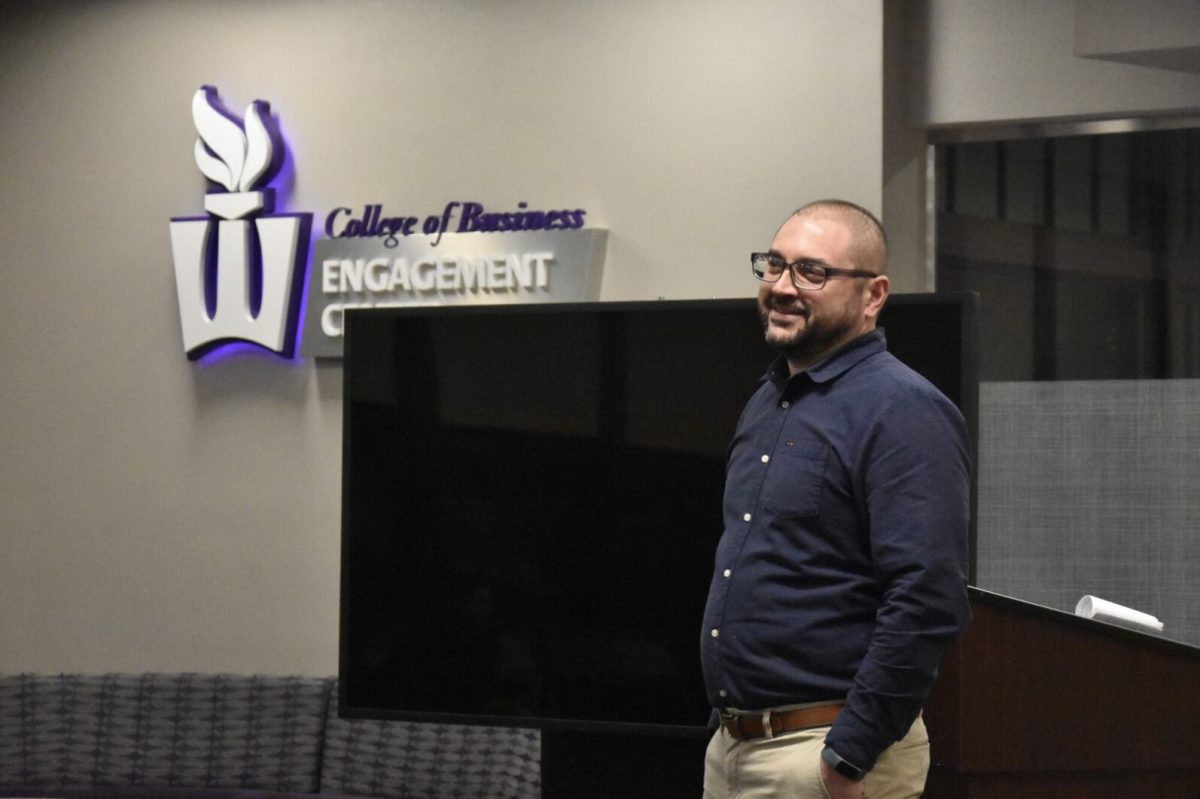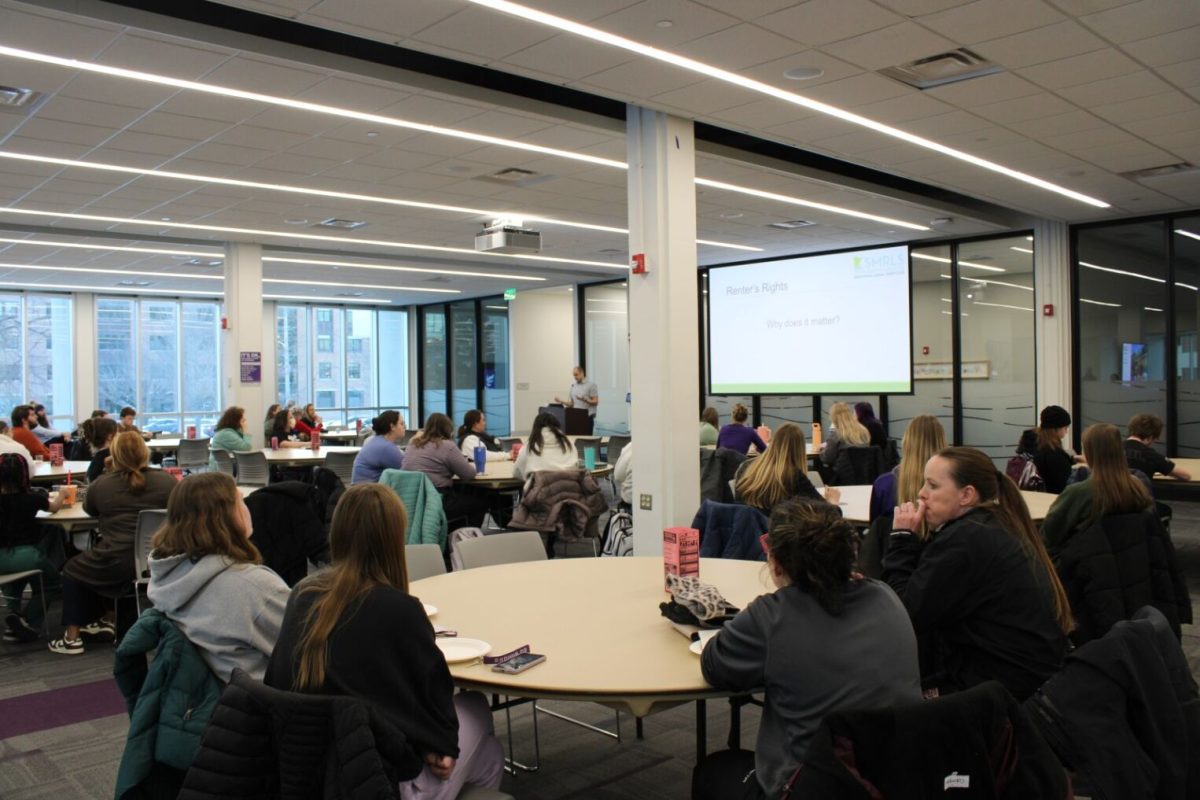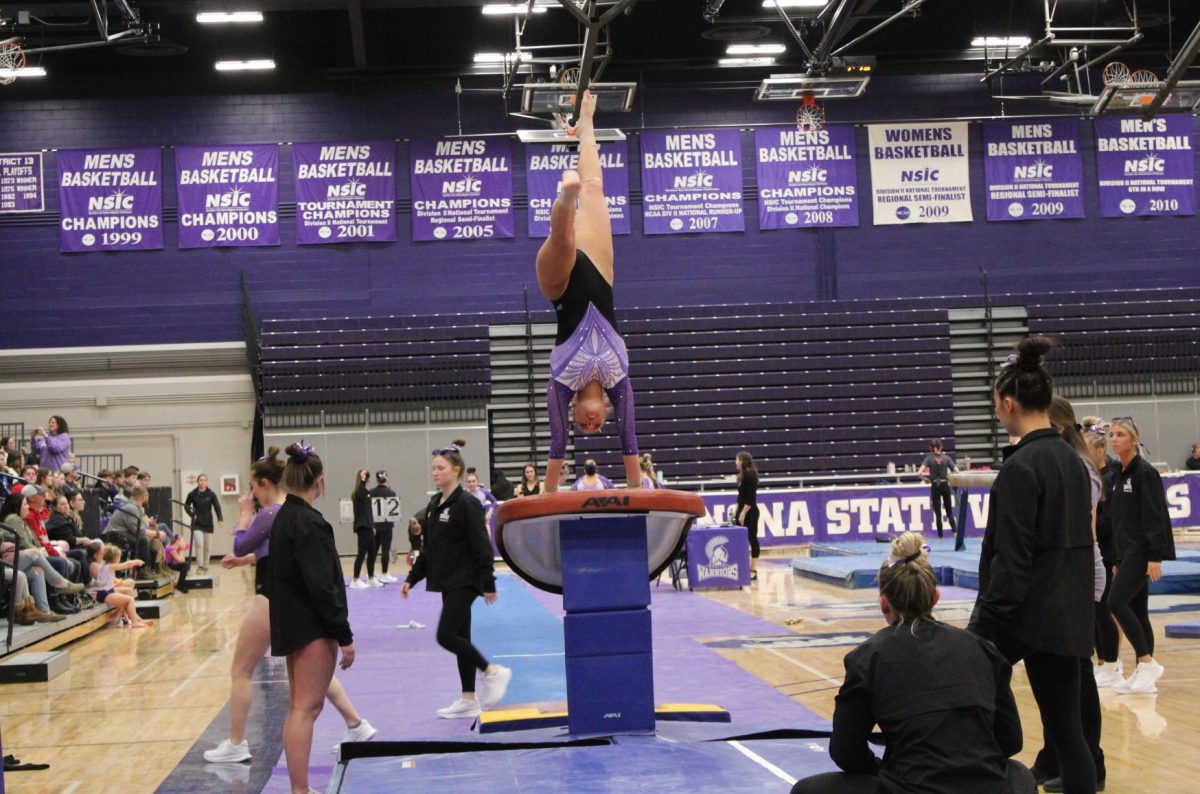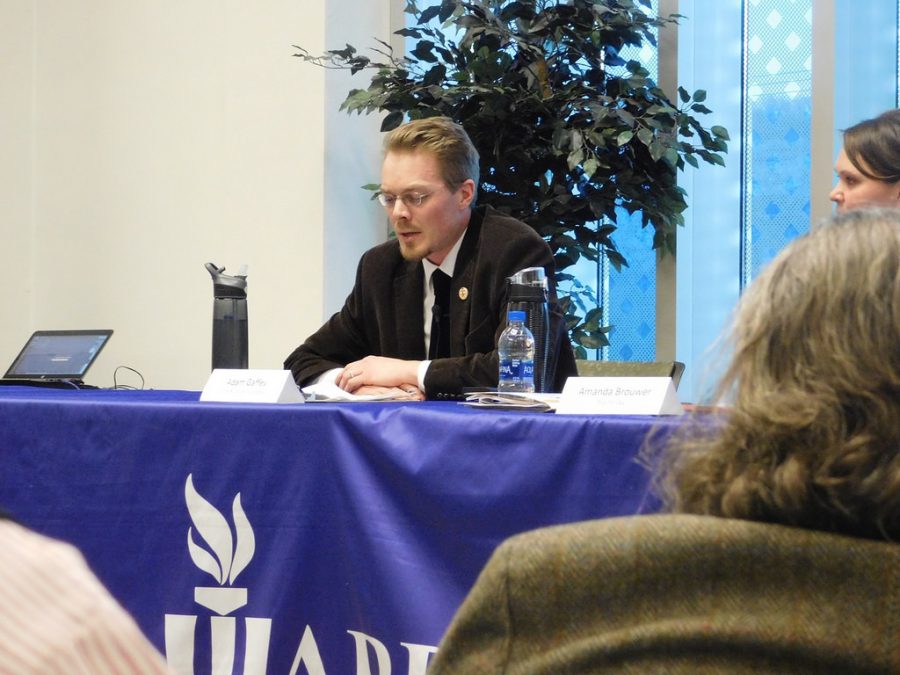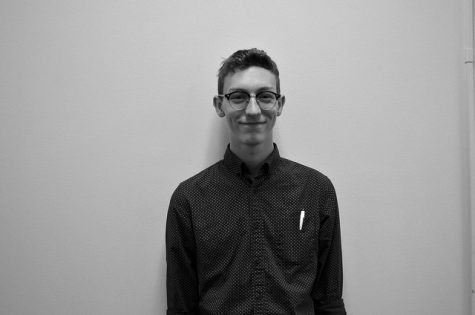Winona State discusses anti-intellectualism
Adam Gaffey, a communication studies professor, speaks at a panel discussing anti-intellectualism on the second floor of the Darrell W. Krueger Library on Wednesday, Feb. 2.
February 7, 2018
The Consortium for Liberal Arts and Science Promotion (CLASP) held a panel in Krueger Library on Jan. 31 to discuss what causes and effects anti-intellectualism has and how Winona State University can address it.
CLASP was formed in 2004 and is intended to prompt discussion and exchange. There is not one specific audience that this series is intended for, but rather aims at the student body, faculty and Winona community.
The panel was hosted by philosophy professor, David Speetzen.
“Anti-intellectualism is a waning interest in and appreciation for intellectual inquiry,” Speetzen said.
The panel featured Adam Gaffey, a communication studies professor, Amanda Brouwer, a psychology professor and Scott Olson, Winona State president.
Each panelist spoke for about 10 minutes on anti-intellectualism and how it is applicable in their primary field of study.
Gaffey proposed a hypothetical solution and discussed classroom experiences that he’s had.
“Anti-intellectualism thrives when debate dies. When quantity outweighs quality, we find anti-intellectualism,” Gaffey said. “In order to battle anti-intellectualism, we must partake in practical reasoning. Argumentation and debate should be at the core of valuable education.”
Brouwer discussed confirmation bias and our sense of self when processing information.
“We remember ideas that we agree with best, regardless of the truth. This is confirmation bias,” Brouwer said. “We need to practice creating healthy skepticism; we want to battle misinformation. As we learn and experience things, our self-identity and self-image changes. We are constantly confirming or disbelieving information that we see.”
Olson discussed what he believes to be the “attack on learning.”
“It’s hard not to notice the increasing anti-journalism claims with talk of ‘fake news,’ and we’re seeing organized groups becoming anti-university and questioning the ideologies of going to college,” Olson said. “However, Minnesota is relatively isolated from these organized groups that are prompting anti-intellectualism.”
Olson also discussed how postmodernism and deregulation has contributed to the idea of anti-intellectualism.
“This idea of rejecting and being skeptical towards some forms of philosophy along with deregulating what can and cannot be aired in news media, all combined with the advancement of technology, is what is fueling this anti-intellectualism,” Olson said.
Olson shared a report by the American Council of Trustees and Alumni (ACTA) regarding the rigor of the liberal arts curriculum. The purpose of this report is to inform the public on the quality of four-year public schools that have a focus on liberal arts. Winona State, along with 24 percent of the universities in the report, scored a D. Only 2.2 percent of these universities scored an A.
“In order to battle anti-intellectualism as well as building healthy skepticism is to triangulate your sources,” Olson said. “This process builds the reliability of the sources that you’re using, but it’s also a good skill to constantly be using.”



